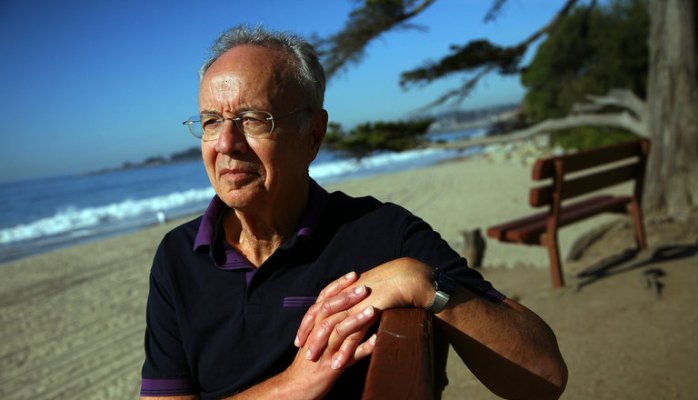
Andy Grove, the legendary CEO of Intel, passed away a couple months ago and this post is not intended as a news flash or a delayed eulogy.
More recently, though, many people with a connection to Andy gathered at the Computer History Museum in Silicon Valley to hold a memorial in his honor. My topic here is how that event embodied LinkedIn founder Reid Hoffman’s idea of the “tour of duty” as the model for the employee-employer covenant. Creating this conceptual connection is a post of which I hope Andy would approve. It says something about his leadership and what might be required of others who hope to lead in a time of tremendous change.
Several generations of Intel were represented and reconnected at this memorial event. Amid the catching up were the reminiscences of shared experiences. They ranged from product launches to problems and what Andy called “strategic inflection points,” when the world changed and you found yourself in a different business from one day to the next. Colleagues from the legal team and I reflected on an amazing time when we addressed questions of intellectual property that still shape the technology industry. Dennis Carter, the father of “Intel Inside,” not only shared his memories of Andy but he heard about some lessons he teaches my students without ever stepping into my classrooms. And all around, people who built intense relationships – yet moved on to other challenges outside of Intel – relived the things they learned together in the crucible of the world’s indispensable chip company.
In this sense, Intel under Grove was ahead of its time on Reid Hoffman’s calendar. The LinkedIn founder has put forth the idea of the “tour of duty” to describe the modern employer-employee relationship. The “tour of duty” idea attempts to intervene between those who would bemoan the death of long, stable, retire-at-the-same-place careers and those who would turn the world into winner-take-all mercenary dynamics.
“You can’t have an agile company if you give employees lifetime contracts—and the best people don’t want one employer for life anyway,” Hoffman wrote in HBR. “But you can build a better compact than ‘every man for himself.’”
The HBR piece and the larger philosophy encourage companies to rethink their ideas of loyalty and what constitutes employee contributions as well as the investments they make in employees during a time when good people are constantly exposed to new opportunities. The tour of duty concept is more than a metaphor and it resonates strongly with students attempting to conceive of a career in a world where some of the jobs they will have don’t exist yet. You can read more about Hoffman’s idea here, but the basic template is that organizations and people voluntarily embrace each other for periods of time. The relationship is rock solid and mission driven. You invest in the organization and the organization invests in you. You make intense relationships. You do great things.
When the mission is accomplished, both sides get a chance to reassess the next phase. You and the organization can both move on. But, the connection persists and both sides continue to benefit from that connection.
Andy didn’t use the term “tour of duty” but Hoffman would recognize the idea in Grove’s management practices. Andy kept a fluid organization that could easily channel people from one division to another or cross group lines to form teams to take on new initiatives. He maintained connections to people once they left and played a major role in setting up the Intel Alumni Network, hosted here on LinkedIn. Hoffman’s HBR piece placed a high premium on establishing alumni networks as a way of keeping the crucial connections necessary in an ever-changing world.
Gathered at the Andy Grove memorial were bands of brothers and sisters who all served at least one tour of duty at Intel. Yet, the number of companies actually represented in that room was legion. Those tours of duty gave many attendees the experience to go on and found other companies, build other juggernauts and create the valley’s incredible venture capital infrastructure. And many stayed to continue building Intel as a never-ending work in progress – the way Andy always saw the company. Yet, a place like Intel, with so many phases of growth and reconfiguring, still offered those people different tours of duty with different players on the team.
And on that night, many people saluted the commander who guided their tours of duty at Intel. For those leaders hoping to create this same kind of relationship that transcends the tour of duty, it is going to take a rethink of what you have to offer. Stock options and unicorn status won’t be enough.
